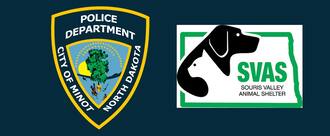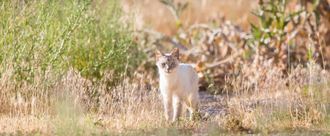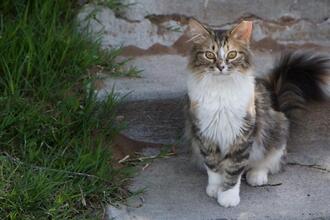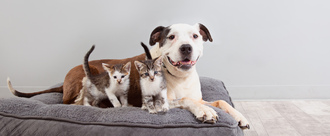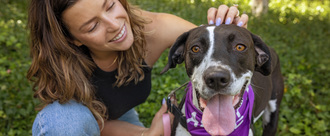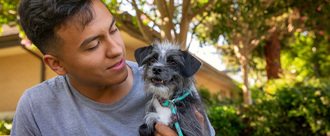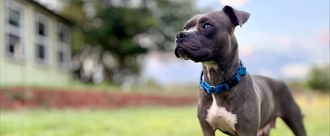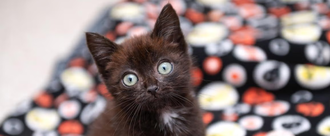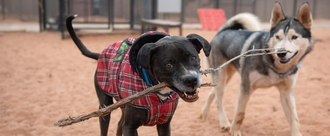-
City of Minot: Don’t leave Minot without Animal ServicesWithout a plan in place, lost and stray animals will have nowhere to go; injured pets may be left without care, and residents and first responders will have no clear process to follow. Minot deserves a humane, safe, and transparent plan for animal services, and together our voices can urge city leaders to act before it is too late. The more signatures we can show them, the more likely they are to consider this change.827 of 1,000 Signatures
-
Apoye programas de gatos comunitarios en el condado UtahLos gatos de la comunidad (también conocidos como gatos callejeros) corren el riesgo de perder la vida simplemente porque han establecido un hogar en su comunidad. Muchos de estos gatos están prosperando viviendo dentro su cominidad porque alguien en su comunidad los cuida. Alrededor de 4,300 gatos ingresan a los albergues de Utah en el 2024, y solo el 60% salieron con vida. Los estudios han demostrado que la forma más efectiva y humana de ayudar a estos gatos es a través de los programas Atrapar, Vacunar, Esterilizar y Regresar, (AVER). Los gatos comunitarios son esterilizados, vacunados, y regresados a su lugar original. Se les cortan un poco de la puntita de una oreja para identificarlos como esterilizados y devueltos a sus comunidades, sin poder tener gatitos. El enfoque tradicional de los gatos comunitarios no ha logrado ofrecer resultados duraderos. La comunidad está lista para el cambio. Ahora necesitamos defensores como tu para ayudar a la ciudad a adoptar estas soluciones que salvan vidas. Para información sobre cómo los recursos y programa AVER visita SalvaUnaMascota.org/CondadoUtah5 of 100 SignaturesCreated by Action Team

-
TNR PROGRAMS - Lake City Florida - Columbia CountyThe overpopulation of cats in Columbia County strains local shelters and poses public health concerns due to a lack of vaccinations and spay/neuter services. A rabies outbreak in the county could have devastating consequences. Florida's feral cat population is estimated to be between 6.3 million to 9.6 million. An independent review suggests a more conservative estimate of 2.7 million to 2.8 million feral cats in Florida, making up about 44% of all cats in the state. Each female feral cat can have up to three litters a year, leading to rapid population growth if not managed. The increasing feral cat population affects local businesses and the overall health and safety of the community. These programs are also proven to be the most cost-effective, veterinarian-approved, and animal-friendly solution for controlling and reducing free-roaming cat populations.220 of 300 SignaturesCreated by Laura R.

-
Jamestown leaders: There’s a better way to manage local cats!Best Friends Animal Society has offered to support them in closing the cat gap of cats being killed at the City of Jamestown to achieve a save rate of 90% or higher at no cost to taxpayers. Local leaders need to hear that the issue is important to Jamestown residents and that helping cats will help the community at large. The more signatures we can show them, the more likely they are to consider this change.57 of 100 SignaturesCreated by Action Team

-
Stop Catch and Kill of Community Cats in St Johns County Florida1. Update of the 2017 St Johns County Animal Ordinance: We request the acknowledgment and definition of: Community cats, Feral cat colony caregivers, Efforts of our coalition to trap and sterilize them and SJC animal control officers’ commitment to partnering with us out in the field. This will help our effort in the community, clarify goals and reduce the often stated “fear factor” of Animal Control expressed by the caring folks and volunteers who trying to help. Again, we want humane, cost effective and sustainable solutions to the overpopulation of these cats. 2. Utilization of existing Animal Control Resources (such as the surgery facility) to Support these Efforts: The primary challenge for the volunteers in this community is the lack of available facilities to perform the specialized hi volume spay/neuter surgeries. Our county funded Animal Control surgery facility has never been utilized to assist in this community service. St Johns County citizens in this effort must travel to Flagler, Duval and Clay counties to get these cats sterilized. This increases costs for surgery as an out-of-county resident, transportation expenses to and from appointments, time and additional stress on the animals confined to traps. We ask for your help by signing this petition and sharing it with your friends. In addition, please email all of our St Johns County Commissioners in support of our efforts and requested changes to work toward ending the outdated, unsuccessful policy of “Catch and Kill” of community cats in our county. County Commissioner emails are listed below: [email protected] Christian Whitehurst [email protected] Sarah Arnold [email protected] Clay Murphy [email protected] Krista Joseph [email protected] Ann Taylor1,071 of 2,000 SignaturesCreated by Lorie U.
-
Bring No-Kill to Pulaski County Animal Control!To become a no-kill shelter, 90% of the animals need to leave the shelter alive. Pulaski County Animal Control is already so close to reaching this milestone, but they need the community's help. Let's show the shelter staff and leadership how much their work means to the community by helping them spread the word about adoption and sending them messages of support. Together, we can make the Pulaski County Animal Control no-kill!7 of 100 SignaturesCreated by Anjali K.
-
Bring no-kill to Logan County Humane Society!To become a no-kill shelter, 90% of the animals need to leave the shelter alive. Logan County Humane Society is already so close to reaching this milestone, but they need community help. Let's show the shelter staff and leadership how much their work means to the community by showing up to adopt, foster and volunteer! Together, we can make the Logan County Humane Society no-kill!6 of 100 SignaturesCreated by Kathleen M.
-
Apoya el albergue de Galena Park, TX¿Por qué es esto importante? Para convertirse en un albergue no-kill, el 90% de los animales deben salir vivos del albergue. El Control de Animales de la Ciudad de Galena Park ya está muy cerca de alcanzar este objetivo, pero necesitan la ayuda de la comunidad. Demostremos al personal y a los líderes del refugio lo mucho que significa su trabajo para la comunidad ayudándoles a difundir información sobre la adopción y enviándoles mensajes de apoyo.4 of 100 SignaturesCreated by Victoria R.
-
Bring no-kill to New Braunfels, TXTo become a no-kill shelter, 90% of the animals need to leave the shelter alive. The Humane Society of New Braunfels Area is so close, but they need community help. Let's show the shelter staff and leadership how much their work means to the community by showing up to adopt, foster and volunteer! Together, we can make New Braunfels a no-kill community!34 of 100 SignaturesCreated by Victoria R.
-
Bring No-Kill to City of Ferris Animal Shelter!To become a no-kill shelter, 90% of the animals need to leave the shelter alive. The City of Ferris Animal Shelter is already so close to reaching this milestone, but they need the community's help. Let's show the shelter staff and leadership how much their work means to the community by helping them spread the word about adoption and sending them messages of support. Together, we can make the City of Ferris Animal Shelter no-kill!9 of 100 SignaturesCreated by Jessi C.
-
Bring No-Kill to Cleburne Animal Services!To become a no-kill shelter, 90% of the animals need to leave the shelter alive. The Cleburne Animal Services is already so close to reaching this milestone, but they need the community's help. Let's show the shelter staff and leadership how much their work means to the community by helping them spread the word about adoption and sending them messages of support. Together, we can make Cleburne Animal Services no-kill!7 of 100 SignaturesCreated by Jessi C.
-
Bring No-Kill to City of Alvarado Animal Control!To become a no-kill shelter, 90% of the animals need to leave the shelter alive. The City of Alvarado Animal Control is already so close to reaching this milestone, but they need the community's help. Let's show the shelter staff and leadership how much their work means to the community by helping them spread the word about adoption and sending them messages of support. Together, we can make the City of Alvarado Animal Control no-kill!10 of 100 SignaturesCreated by Jessi C.

